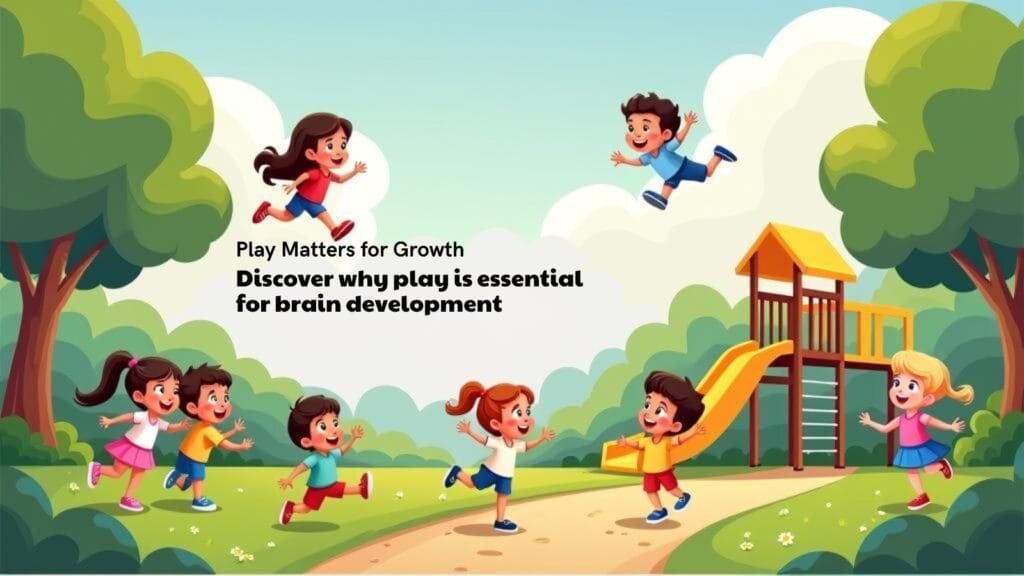In the world of child development, one truth stands tall—play is essential. It’s not merely a fun activity; it’s how children learn, grow, and connect with the world around them. Every block stacked, every game of pretend, and every round of catch is actively shaping a child’s brain and laying the groundwork for future learning and life skills.
How Play Fuels Brain Growth
When children engage in play, their brains light up, literally. Key areas of the brain responsible for memory, decision-making, emotional regulation, and motor coordination are stimulated.
- Prefrontal Cortex: Supports planning and social behavior, especially during imaginative or role-playing games.
- Cerebellum: Strengthens coordination and balance through physical movement.
- Hippocampus: Plays a role in learning and memory, activated during exploration and problem-solving.
Through consistent, meaningful play, neural pathways are built and strengthened, helping children process emotions, language, and reasoning skills more effectively.
Different Kinds of Play, Different Benefits
1. Active or Physical Play
Running, climbing, jumping, these are not just energy burners. They improve gross motor skills, build strength, and support emotional regulation.
2. Pretend Play
When a child acts out roles or stories, they’re building empathy, creativity, and flexible thinking, crucial elements of executive functioning.
3. Constructive Play
Activities like puzzles or building with blocks sharpen fine motor skills, spatial reasoning, and persistence.
4. Social Play
Games with others teach cooperation, turn-taking, and conflict resolution, key aspects of social and emotional development.
Play for Every Child, Every Ability
At GiftAbled’s Child Development Center, we witness daily how play transforms learning for children with developmental delays and diverse abilities. Structured play therapy can be a breakthrough for children with autism, speech delays, or sensory challenges. Play is flexible, inclusive, and tailored to meet a child’s unique pace and potential.
How Parents Can Encourage Play-Based Development
You don’t need expensive toys or fancy programs to support your child’s brain development, you just need time and attention. Here’s how:
- Encourage unstructured playtime every day
- Let your child lead, they are the best creators of their play world
- Join in the fun, your presence enhances the experience
- Create screen-free moments to allow the brain to explore more organically
Final Thought: Play is the Foundation of Learning
Play is not a break from learning, it is learning. It sparks curiosity, builds confidence, and prepares children to face the world with resilience and creativity. As caregivers, educators, and advocates, we must make space for play and honor it as the critical building block of healthy childhood development.
Let us celebrate play. Let us protect it. Let us promote it, because every child deserves the chance to learn through joy.

